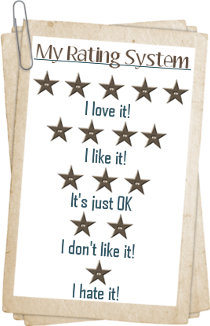
Fiction Writers - How to Make Your Characters Believable
Have you ever abandoned a best-selling novel before making it to page 37? I did. And in many cases, it happened to be for the same reason—the characters or some other aspects in the story were not believable. The great hero was chased by four professional killers with submachine guns. All he had was a screwdriver and a piece of chewing gum, but he managed to stop the killers and dispose of them one by one. Really? What is this—a cartoon? And you want me to go ahead and keep on reading this nonsense? And how about this one? "The commercial 767 jet landed in the Jerusalem airport after circling the skies above the al-Aqsa Mosque and the Church of the Nativity…" There are two errors, which could turn off an audience—Jerusalem has no airport, and the Church of the Nativity is in Bethlehem—not in Jerusalem. It’s basic. Those who have never attempted their hand at fiction writing might not realize that a good quality novel requires a great deal of research, sustaining many of the fine points that shape the characters, the atmosphere, the scenes, the scenery, and the plot as a whole—keeping it real. When describing a real place, a building, a location, an institution, you ought to make sure that you truly know what it looks like. You want to offer your audience a guided tour; make them experience the sights, sounds, smell and atmosphere. You also want to steer clear of criticism by those who have been there and find your descriptions misleading and incorrect; thus, exposing your ignorance and lack of credibility. Understanding time zones is another area where you can fall flat on your face and lose or be ridiculed by your audience, if you fail to understand basic geography. Winston Churchill Jr. in his book about the 1967 Six-Day-War between Egypt and Israel, explained, in the very beginning, how Israel took advantage of the one-hour time difference between the two countries, whereas, 8:00 a.m. in Israel was already 9:00 a.m. in Egypt. He went on to develop an entire theory as to why 9:00 a.m. in Cairo was an ideal moment for the Israeli surprise attack on the Egyptian airfields. His only error—8:00 a.m. in Israel is actually 7:00 a.m. in Egypt. It’s an hour earlier rather than later. What happened to Churchill’s thesis when its foundation crumbled? As far as I was concerned, Churchill endured a complete loss of credibility. Schedules, particularly airline schedules, must conform to the test of feasibility. If United Airlines does not fly to Israel, don’t make your hero take that non-existent flight. If it takes a minimum of ten hours to make it from point A to point B, don’t make it sound as if it’s a short trip. Pay close attention. In chapter one you described your hero. He had blue eyes; he was six-feet-tall with a solid frame; he had a scar on his left jaw, and his right index finger was missing. Your audience got the idea. At first glance, the guy was a good-looking chap; however, a careful scrutiny revealed some war borne wounds—a potential turn-off. In contrast, you forgot a detail or two when describing the same man in chapter eleven. His scar changed sides, his index finger grew back, eyes became brown, or his large belly was the size of Mount Saint Helen where eruption seemed imminent. Do you find these descriptions inconsistent? Now, I am confused. I pictured your hero earlier; he was tall and athletic looking, but now, he’s converted to something else. Are we talking about the same person? Earlier you wrote that he had grown up in France, then moved to the US on his twenty-seventh birthday. So, where did he acquire his "typical" Southern drawl? Another potential hazard to be aware of is that changes in situations must pass through a feasible path even if the path is not discussed in the book. Your hero could not have breakfast in Los-Angeles followed by Lunch in Paris with his fiancé. He could not lift her in his arms two days after suffering from a bullet wound in his right shoulder. And remember, if you want to make your characters believable, don’t make them perfect. Heroes are human, they make mistakes, they have weaknesses; they do not escape unharmed every time they encounter danger. They may win at the end, but they may endure some serious setbacks on the way. Attaching ordinary flaws to your hero would make her more human and more believable, while at the same time, it may add to tension and conflict—a quality that would make your book more exciting. And finally, make sure that your evil characters are more than just evil. There is no reason for you to make them stupid as well. I know. You want me to hate them. But that emotion will be better achieved if evil is strong and powerful, influential and smart, and therefore, more believable. Here again, the character should not be perfect. His Achilles heel will take him down one of these days. You may even use that character flaw as the reason for bringing him down after you take your story up on a crescendo to the top of the mountain before resolving it at the final pages. In conclusion, character believability is only one ingredient that your story will benefit from. There is, however, much more that your story requires. But failing the test of believability would turn off your audience and you may never recover from that fall.
More on key aspects of fiction writing is discussed in my next post at www.aviperry.org.





















No comments:
Post a Comment